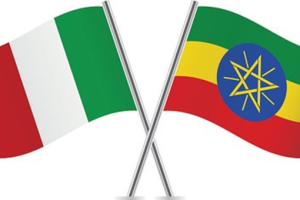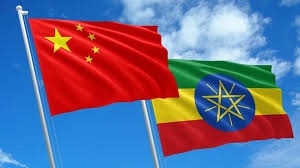
The importance of a Memorandum of Understanding (MoU) signed during Deputy Prime Minister Temesgen Tiruneh’s visit has been underlined by Ethiopia and Azerbaijan last week. According to the local media, the Memorandum of Understanding calls for the creation of centres in Ethiopia that would follow the “ASAN Xidmet” model of the state agency for public services in Azerbaijan.
Ali Asadov, the Prime Minister of Azerbaijan, stressed the critical importance Baku attaches to cultivating relations with African states, including Ethiopia, during a recent meeting with a team led by the Deputy Prime Minister of Ethiopia. The two nations praised each other’s collaboration in international organizations and emphasized how critical it is to take advantage of all opportunity to deepen bilateral connections, especially in the fields of social innovations and public services.
Expanding the bilateral relationship between Addis Ababa and Baku in a number of sectors was another topic of discussion during the conference. After seeing the potential for cooperation in trade and investment, cultural exchanges, and diplomatic cooperation, the two nations have set out to build a strong and mutually beneficial partnership.
The diplomatic relations of the two nations were established on November 2, 1992. Since then, the relationship has grown across multiple sectors, and both countries face the challenge of being landlocked. However, Azerbaijan, as a landlocked country in the South Caucasus region, has made significant strides in enhancing its import-export capabilities by securing access to the sea. The establishment of the Alat-Astara Railway line connecting Azerbaijan to Iran’s Persian Gulf ports marks a pivotal moment for the nation’s economic development.
This strategic move opens up new avenues for Azerbaijan to diversify its trade routes and reduce dependency on existing transit corridors. By leveraging this railway link, the country aims to streamline its export processes, particularly for oil and gas products, and attract foreign investment through improved connectivity. The enhanced access to sea routes not only strengthens Azerbaijan’s position as a key player in regional trade but also bolsters its economy by fostering greater trade volumes and economic growth opportunities.
As a landlocked country, Ethiopia can draw valuable lessons from Azerbaijan’s approach to expanding trade opportunities. By investing in multi-modal transportation networks and forging strategic partnerships with neighbouring countries, Addis Ababa can overcome the challenges posed by its geographical constraints and unlock new pathways for economic growth. The recent movement by Ethiopia to access the sea further bolsters the country’s growing economy.
In addition to the importance of sea access, the collaboration between Ethiopia and Azerbaijan is focused on trade and investment. Both countries possess abundant natural resources and have made significant strides in economic development. The former with its burgeoning economy and strategic location in East Africa, offers a gateway to the wider African market, while the latter, situated at the crossroads of Europe and Asia, serves as a vital link between these two continents. By leveraging their respective strengths, the two nations are poised to enhance bilateral trade, promote investment opportunities, and explore joint ventures in sectors such as energy, agriculture, infrastructure, and technology.
The two countries diplomatic coordination is another vital aspect of the growing partnership of the nations. Both countries recognize the importance of collaborating on regional and global issues to further their common objectives. As active members of international organizations such as the United Nations, African Union, and Organization of Islamic Cooperation, Ethiopia and Azerbaijan have demonstrated their commitment to upholding peace, stability, and development on the global stage.
By aligning their positions on key issues, sharing expertise, and supporting each other’s initiatives, the two countries contribute to a more harmonious and prosperous world.
As this relationship flourishes, it is crucial to underline the potential benefits it holds for the citizens of both nations. Closer cooperation can lead to job creation, technology transfer, and enhanced skills development, ultimately improving the quality of life for people in both countries. Additionally, the exchange of knowledge and best practices in various sectors can accelerate progress towards achieving the Sustainable Development Goals (SDGs) in both nations.
The future looks promising for Ethiopia and Azerbaijan as they embark on this path of collaboration and friendship. By harnessing their collective strengths, these nations have set the stage for a partnership that could serve as a model for cooperation between countries across different regions.
Remarkably, following a joint parliamentary meeting last year, the two countries pledged to keep enhancing their diplomatic, public service, economic, and inter-parliamentary ties. Betelhem Laké, the Chairwoman of the Ethiopia-Azerbaijan Parliamentary Friendship Group, emphasized Ethiopia’s intention to collaborate with Azerbaijan in areas such as investment, trade, and education. The parliamentary friends of Ethiopia and Azerbaijan also emphasized the significance of assiduously pursuing the enhancement of the two countries’ comprehensive bilateral relations.
The economic relations between the two countries are steadily strengthening. According to The Observatory of Economic Complexity (OEC) report in 2022, Azerbaijan exported 137,000 dollar worth of Refined Petroleum to Ethiopia. Over the past 22 years, the former’s exports to the latter have grown at an annual rate of 16.2%, from 5,000 in 2000 to 137,000 dollar in 2022.
In the same year, Ethiopia exported 175,000 dollar worth of goods to Azerbaijan, with Coffee ($57.6 thousand), Cut Flowers ($47.7 thousand), and Spices ($43 thousand) being the main commodities. Ethiopia’s exports to Azerbaijan have increased at an annual rate of 17% over the last 22 years, rising from 5.49 thousand in 2000 to 175,000 dollar in 2022 as per the report findings.
High-ranking officials from Ethiopia and Azerbaijan visit each other as a means of enhancing their ties. During a formal visit to Ethiopia in November 2017, Elmar Mammadyarov, the former foreign minister of Azerbaijan, had meetings with senior Ethiopian officials and former president Mulatu Teshome to discuss on regional issues and bilateral cooperation. The groundwork for further cooperation between the two nations was established by this visit.
In conclusion, Ethiopia and Azerbaijan are strengthening their ties through a Memorandum of Understanding that focuses on areas such as public services and social innovations. The collaboration between the two countries extends to trade and investment, cultural exchanges, and diplomatic coordination. By leveraging their respective strengths and learning from each other’s experiences, Ethiopia and Azerbaijan aim to enhance bilateral trade, promote investment opportunities, and foster economic growth.
BY EYUEL KIFLU
THE ETHIOPIAN HERALD TUESDAY 21 MAY 2024





